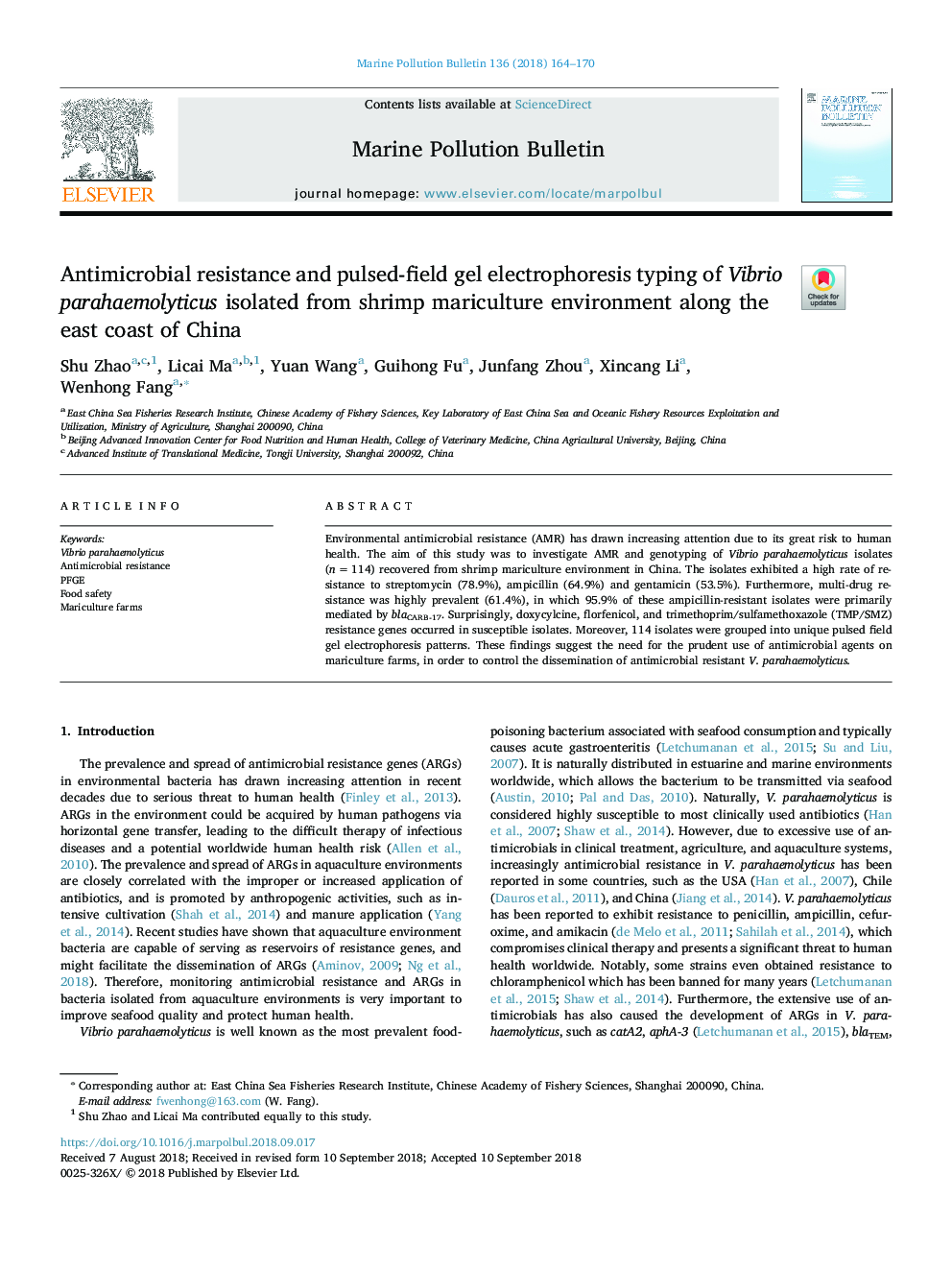| Article ID | Journal | Published Year | Pages | File Type |
|---|---|---|---|---|
| 10149699 | Marine Pollution Bulletin | 2018 | 7 Pages |
Abstract
Environmental antimicrobial resistance (AMR) has drawn increasing attention due to its great risk to human health. The aim of this study was to investigate AMR and genotyping of Vibrio parahaemolyticus isolates (nâ¯=â¯114) recovered from shrimp mariculture environment in China. The isolates exhibited a high rate of resistance to streptomycin (78.9%), ampicillin (64.9%) and gentamicin (53.5%). Furthermore, multi-drug resistance was highly prevalent (61.4%), in which 95.9% of these ampicillin-resistant isolates were primarily mediated by blaCARB-17. Surprisingly, doxycylcine, florfenicol, and trimethoprim/sulfamethoxazole (TMP/SMZ) resistance genes occurred in susceptible isolates. Moreover, 114 isolates were grouped into unique pulsed field gel electrophoresis patterns. These findings suggest the need for the prudent use of antimicrobial agents on mariculture farms, in order to control the dissemination of antimicrobial resistant V. parahaemolyticus.
Related Topics
Physical Sciences and Engineering
Earth and Planetary Sciences
Oceanography
Authors
Shu Zhao, Licai Ma, Yuan Wang, Guihong Fu, Junfang Zhou, Xincang Li, Wenhong Fang,
